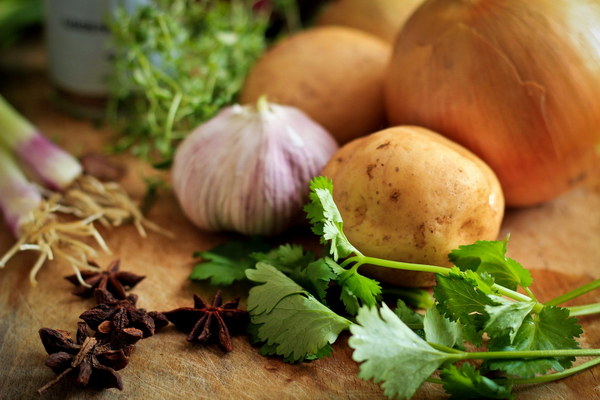Harmonizing Yin, Draining Dampness, and Nurturing the Heart A Holistic Approach to Wellness
In the pursuit of health and vitality, traditional Chinese medicine (TCM) offers a unique perspective on wellness, focusing on the balance of yin and yang, the body's internal environment, and the importance of the heart in overall health. This article delves into the concept of zī yīn qū shī yǎng xīn, which translates to nourishing yin, draining dampness, and nurturing the heart. By understanding and implementing these principles, individuals can achieve a state of holistic wellness that promotes longevity and vitality.
Understanding Yin and Yang
In TCM, yin and yang represent the two fundamental forces that govern the universe and human life. Yin refers to the cold, slow, and passive aspects, while yang represents the hot, active, and dynamic aspects. Maintaining a balance between yin and yang is essential for health, as an imbalance can lead to illness.
Nourishing Yin
Yin is associated with cooling, nourishing, and moisturizing qualities. In the context of health, nourishing yin means replenishing the body's fluids and preventing dryness. This is particularly important during hot, dry seasons or for individuals with conditions such as dry skin, constipation, or dry cough.
To nourish yin, one can incorporate the following practices into daily life:
- Hydration: Drinking plenty of water, herbal teas, or broths can help maintain fluid balance in the body.
- Nutrition: Consuming foods with cooling properties, such as cucumber, watermelon, and spinach, can help balance yin.
- Herbal Remedies: Herbs like peony, rehmannia, and schisandra are known for their yin-nourishing properties.
Draining Dampness
Dampness is a common pathological factor in TCM, often resulting from an overabundance of moisture in the body. Excess dampness can lead to a variety of issues, including fatigue, weight gain, and digestive disorders. Draining dampness involves removing this excess moisture and restoring balance to the body.
To drain dampness, consider the following strategies:
- Physical Activity: Regular exercise can help improve circulation and eliminate dampness through sweat.
- Diet: Avoiding foods that contribute to dampness, such as dairy, sugar, and fatty foods, can be beneficial.

- Herbal Remedies: Herbs like cinnamon, atractylodes, and codonopsis are commonly used to drain dampness.
Nurturing the Heart
The heart is considered the king of the organs in TCM, as it governs the mind, emotions, and blood circulation. Nurturing the heart involves maintaining emotional balance and ensuring the smooth flow of blood throughout the body.
Here are some ways to nurture the heart:
- Emotional Balance: Engaging in stress-reducing activities, such as meditation, yoga, or tai chi, can help maintain emotional balance.
- Healthy Sleep: Ensuring adequate sleep and rest is essential for heart health.
- Nutrition: Consuming foods that support heart health, such as dark leafy greens, nuts, and berries, can be beneficial.
Conclusion
Incorporating the principles of zī yīn qū shī yǎng xīn into one's daily life can lead to a more balanced and harmonious state of health. By nourishing yin, draining dampness, and nurturing the heart, individuals can achieve a higher quality of life and promote longevity. Embracing these practices can help create a path towards holistic wellness, allowing one to thrive in both body and mind.









